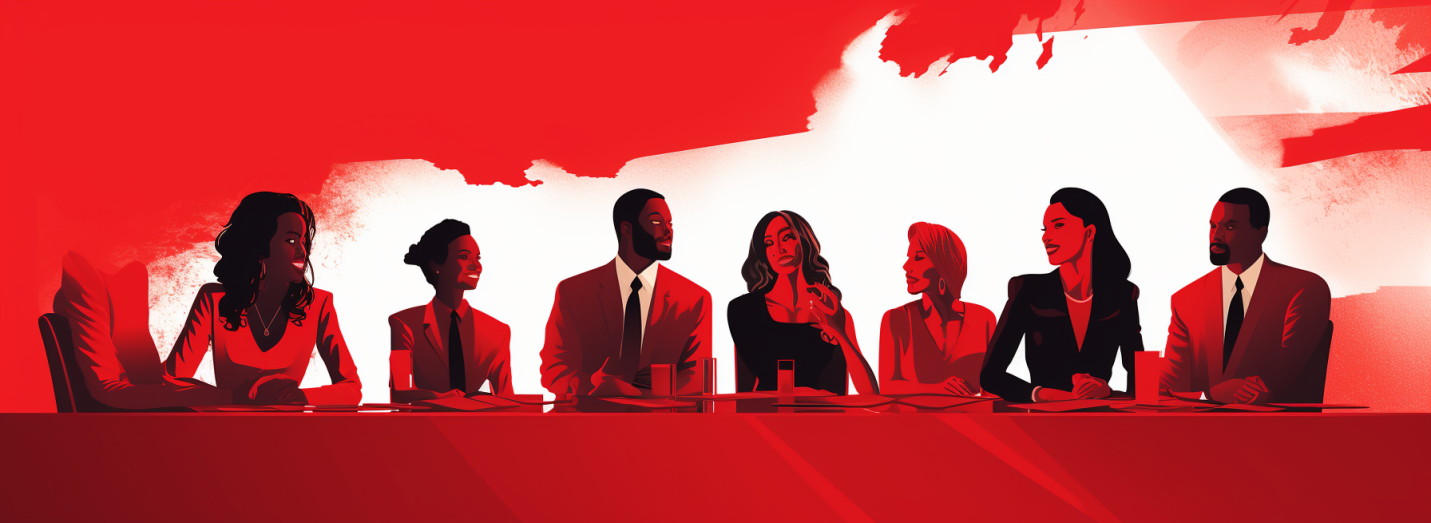Empowering HR leadership in the era of lean organizations
- 4 Min Read
HR leadership must adapt to lean models, focusing on agile strategies, technology integration, and employee empowerment for success
- Author: Liam Joyce
- Date published: Nov 14, 2023
- Categories

In a rapidly evolving business landscape, lean principles have emerged as a transformative force. While designed to maximize efficiency and customer value, the lean approach also presents its unique set of challenges, particularly for Human Resources (HR). As organizations aim for agility and waste reduction, HR leaders find themselves at the crossroads, orchestrating a delicate balance between operational efficiency and workforce well-being. A recent webinar unpacked some of these challenges and solutions. The panel included Hannah Smithmier, a solutions consultant at Rippling, Sarah Riggott, the co-CEO and Chief People Office at Rock, and Beth Samson, People Director at Investors in People.
Decoding the lean organizational mode
Lean organizations pivot on a foundational belief: delivering optimal value through waste minimization. Whether it’s redundant processes, unproductive tasks, or operational inefficiencies, the lean approach seeks to identify and eliminate them. In this streamlined environment, the expectations from each employee magnify. They’re expected to be more agile, multi-skilled, and adaptive. This presents HR with a dual challenge: ensuring workforce readiness for these elevated expectations while safeguarding their well-being.
Deep-dive into HR challenges in lean environments
Employee burnout and mental health: As organizational layers get stripped for efficiency, employees often find themselves in roles that demand more, both in terms of time and skill. This can lead to extended work hours, increased stress, and a heightened risk of burnout. HR’s challenge lies in identifying these stressors early and addressing them.
Continuous learning and development: In lean setups, the luxury of specialized roles diminishes. Employees are often expected to handle cross-functional tasks. This necessitates a culture of continuous learning, where employees are regularly upskilled to handle diverse responsibilities.
Engagement and morale: A common misconception associated with lean transformations is the equating of ‘lean’ with ‘cost-cutting.’ HR has to ensure that the workforce understands the broader strategic imperatives behind lean decisions, ensuring they feel valued and integral to the organizational mission.
Building a lean-first culture: The journey to becoming lean isn’t just operational; it’s deeply cultural. It requires instilling values of continuous improvement, adaptability, and relentless pursuit of value across every echelon of the organization.
The role of leadership in lean transformations
Every transformation, especially one as significant as adopting lean principles, requires champions. Leadership isn’t just about making decisions; it’s about leading by example. When senior management actively champions lean principles, it sends a powerful message throughout the organization.
Setting the tone: Leaders play a crucial role in setting the organizational tone. When they actively participate in lean initiatives, be it training sessions or kaizen events, it underscores the importance of the transformation.
Continuous engagement: Leadership engagement shouldn’t be a one-off event. Regular interactions, town halls, and feedback sessions where leaders discuss the progress, challenges, and successes of lean initiatives foster a sense of collective purpose.
Empowering teams: Lean is about decentralizing decision-making, empowering teams to identify and act on inefficiencies. Leaders must trust and empower their teams, fostering a culture where employees at all levels feel confident in taking initiative.
The future of HR in lean organizations
As businesses evolve and the global landscape shifts, lean principles will continue to be a beacon guiding organizational strategies. For HR, this means an ever-evolving role, continuously adapting to new challenges and opportunities.
Adapting to new work models: The future might see a blend of remote and in-office work, flexible hours, and more. HR will play a pivotal role in ensuring these models align with lean principles, ensuring efficiency without compromising employee well-being.
Embracing digital transformation: The future of HR in lean organizations will be heavily intertwined with technology. Be it AI-driven talent acquisition, sophisticated employee analytics, or digital training platforms, HR will increasingly rely on technology to drive lean initiatives.
Continuous learning and innovation: As industries evolve, the skills and knowledge required will also change. HR will be at the forefront, ensuring that the workforce is always equipped with the latest skills, ready to tackle new challenges.
HR’s evolving role in the lean journey
The transformation to a lean organization, while promising immense rewards, is riddled with challenges. For HR, these challenges also present an opportunity – to transcend traditional roles and become strategic partners in the organization’s lean journey. By understanding the nuances of lean, proactively addressing potential challenges, and leveraging the right mix of strategies and tools, HR can ensure that the organization’s journey towards becoming lean is smooth, efficient, and people centric.









